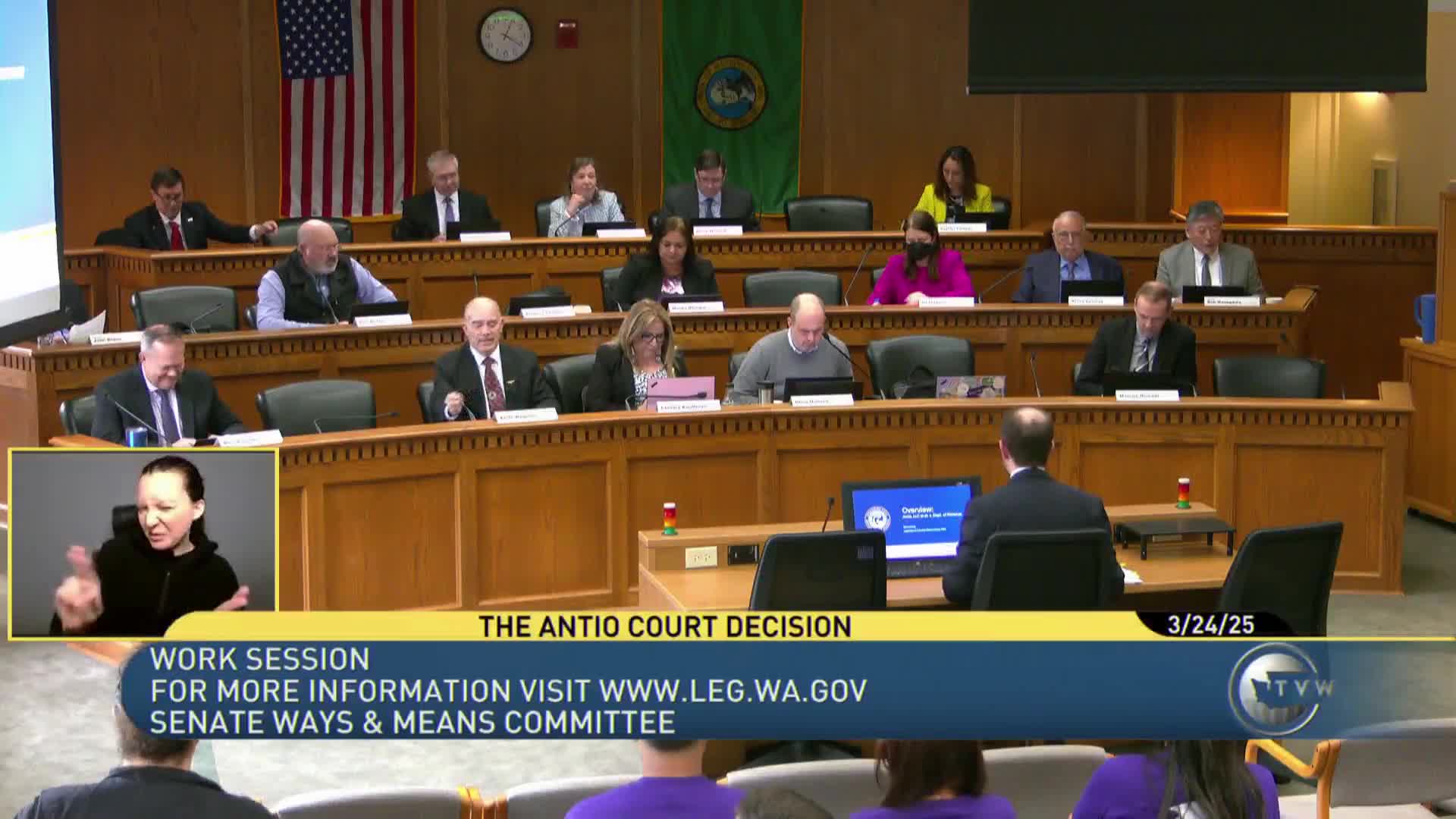Article not found
This article is no longer available. But don't worry—we've gathered other articles that discuss the same topic.
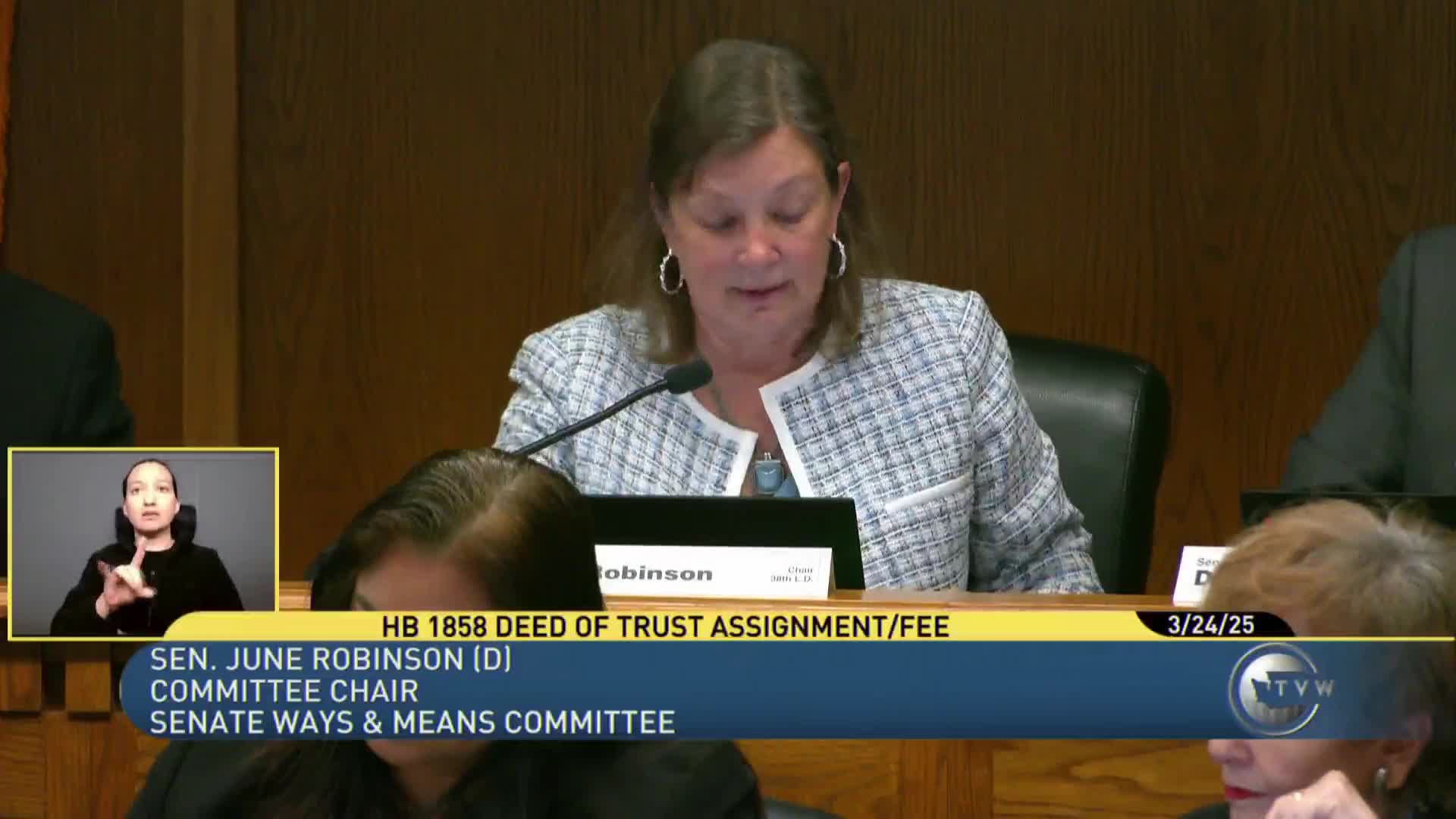
Committee hears testimony supporting removal of deed assignment exemption from recording fee to boost housing funds
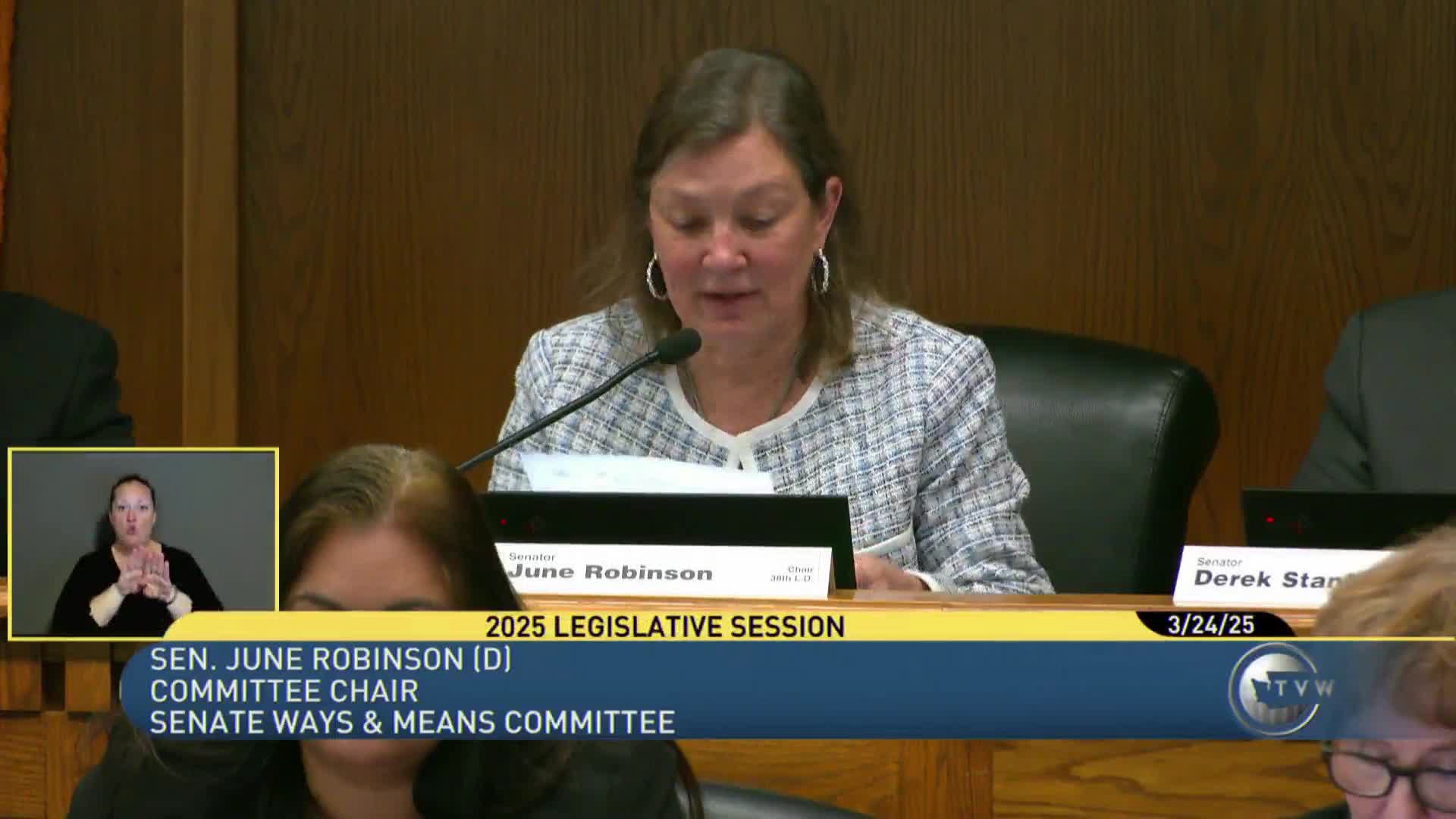
Ways & Means advances four bills to Rules after executive session
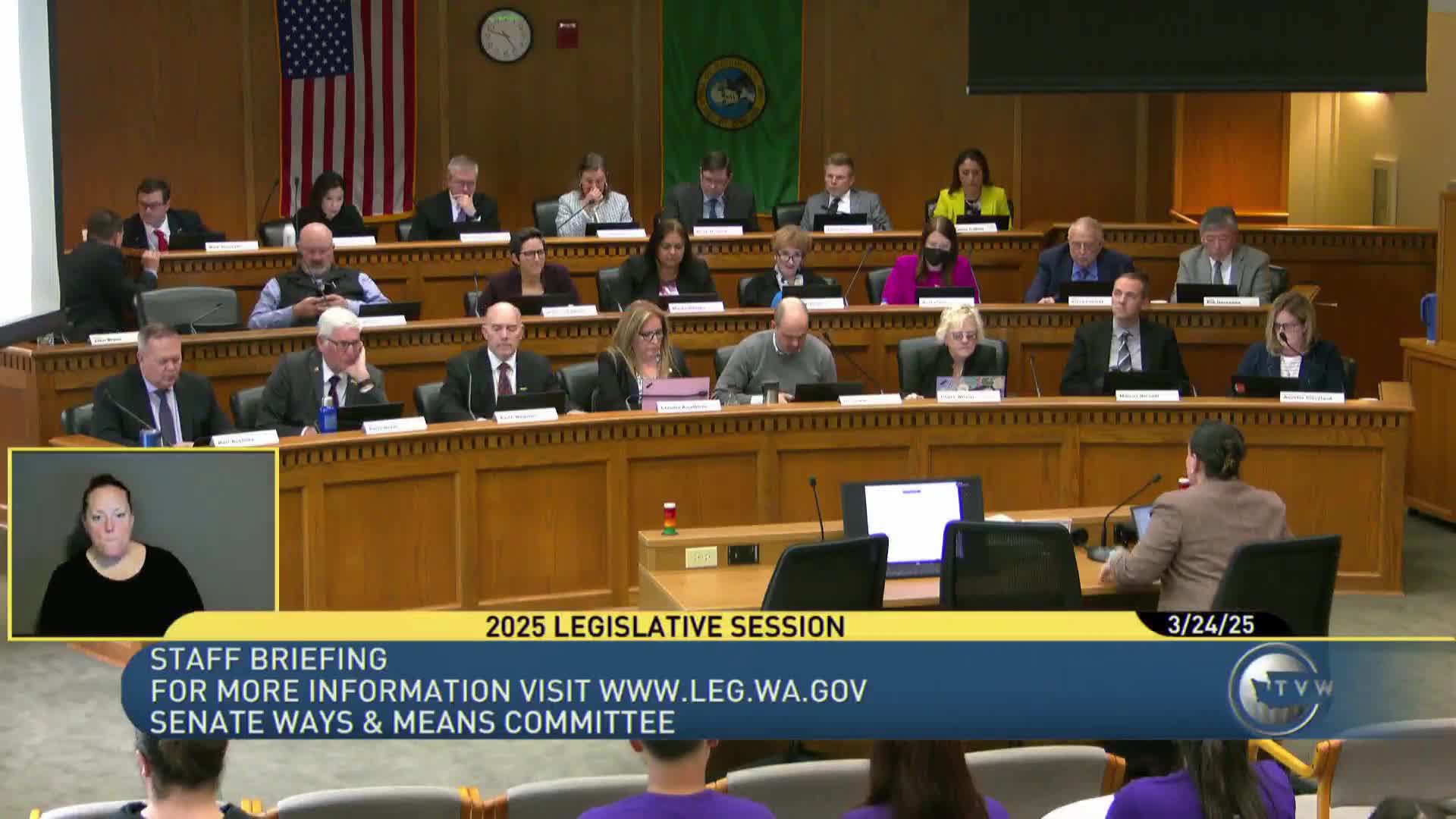
Hearing on SB 5790 draws opposition from faculty and labor groups over proposed COLA change for community and technical colleges
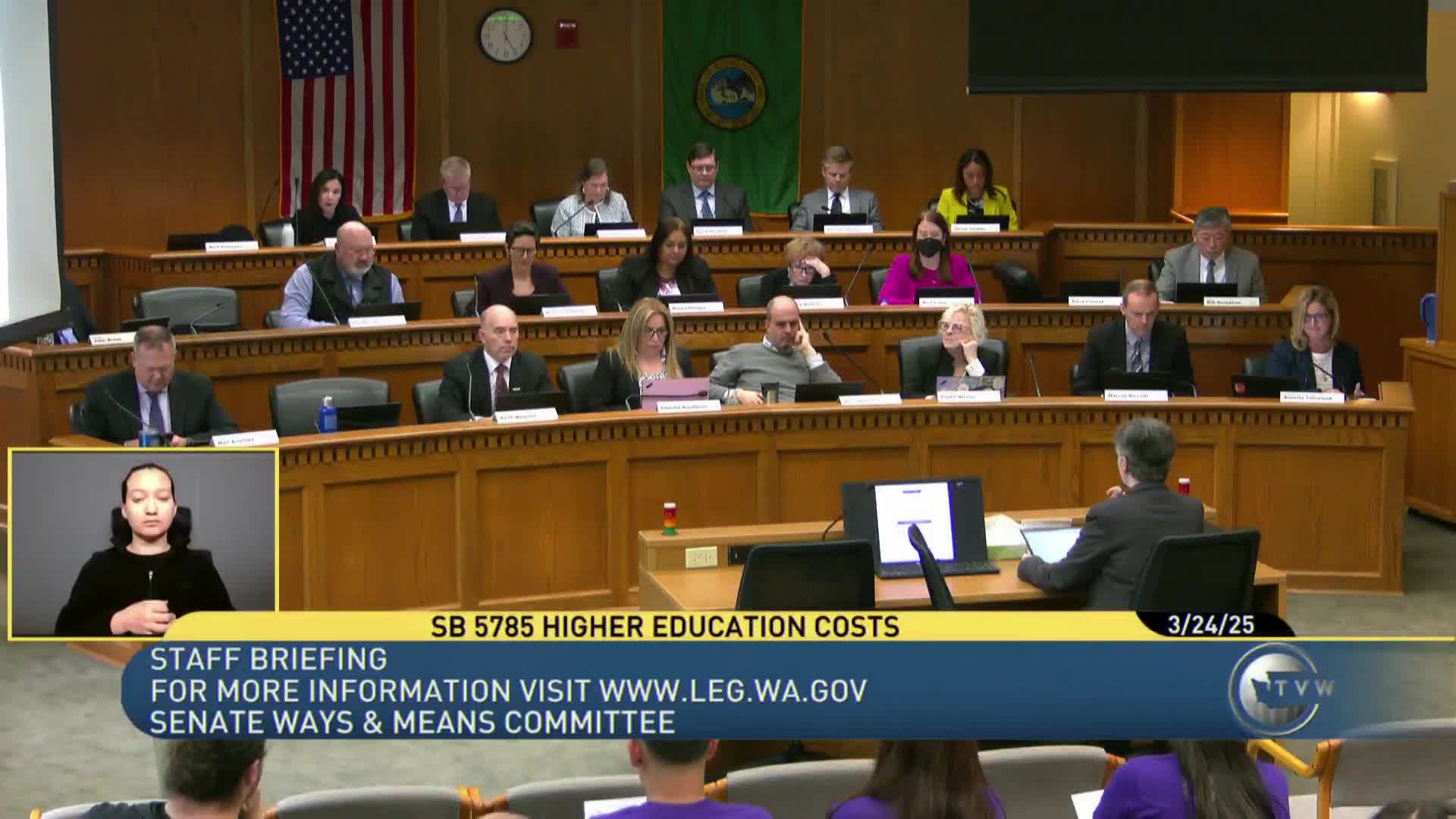
Broad opposition at Ways & Means hearing to bill that would let institutions raise tuition and reduce Washington College Grant awards
